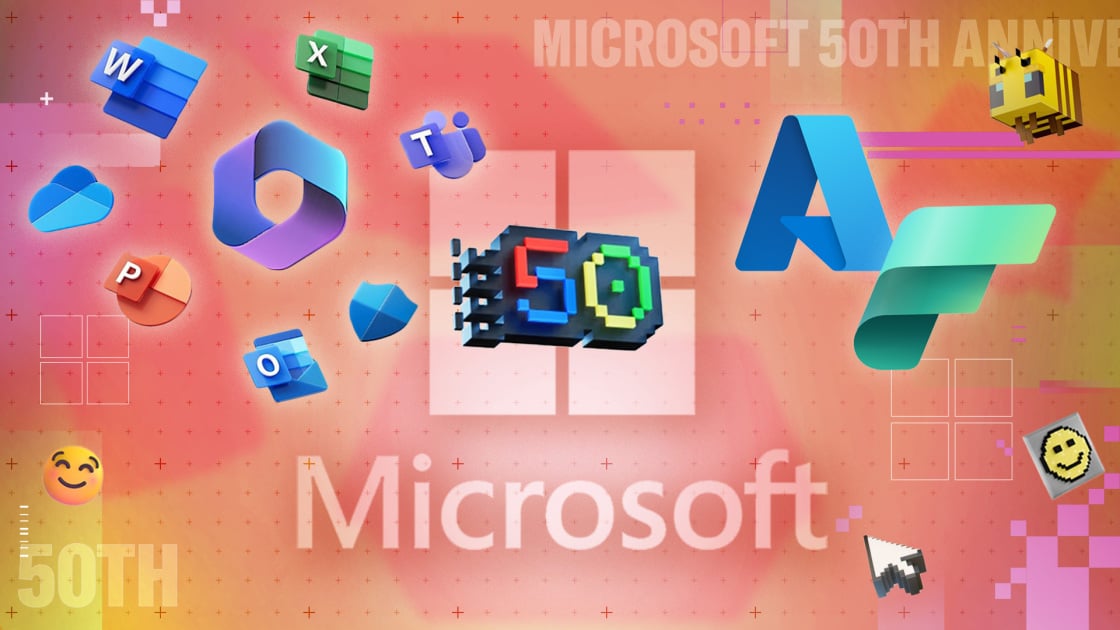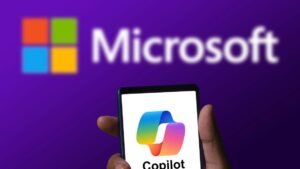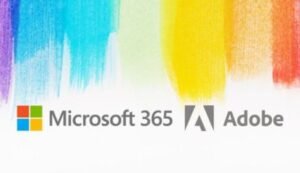Microsoft’s Midlife Shift at 50

As Microsoft marks its 50th anniversary, you might expect some significant updates to its flagship software. However, that’s not quite the case. The company recently shared its plans for the upcoming year, revealing that many of its efforts will primarily focus on generative AI, with less attention to traditional applications like Word, Excel, PowerPoint, and Outlook.
The new features mainly revolve around AI assistants, referred to as Copilots and agents. Copilots are designed to answer questions and assist users in completing tasks, while agents perform tasks independently. Microsoft is working on these AI helpers for various applications within Microsoft 365, the subscription service that includes the Office suite. Upgrades will also enhance AI capabilities for enterprise applications.
Microsoft 365: A Variety of AI Features
The current Microsoft 365 roadmap indicates a total of 682 features under development and an additional 141 rolling out. While this seems extensive, many of these features are minor, and significant updates to core productivity apps primarily relate to Copilot functionality. Notably, Python support in Excel is already being introduced, with broader rollouts expected soon.
Regarding AI options, the Microsoft 365 Copilot will introduce 151 new features and 17 additional features that are currently being implemented. The Copilot is equipped with tools for various tasks, such as:
- Generating presentations from PDF files in PowerPoint
- Using past emails and meetings to help draft documents in Word
- Creating document banners utilizing Copilot and Designer features
Upcoming improvements include more efficient ways to develop presentations from Word documents and utilizing Copilot to help prioritize emails.
Microsoft continues to innovate in other areas too, including the Purview data-management system with 191 new features—outpacing any other category—and enhancements to Viva, their employee experience software, which is seeing 97 new features.
Microsoft Teams will also gain traction with 79 features in development and 59 being rolled out, paving the way for advancements like better support for Windows devices in Teams rooms and live transcription features.
Microsoft Azure: Steady Developments
Microsoft Azure has emerged as a critical platform for the company, superseding Windows as its key infrastructure solution. However, it currently shows only 123 new features in development, most of which have been in progress for over a year. Additionally, there are around 2,600 features in preview status, hinting at the platform’s maturity.
While Microsoft frequently announces new compute instances and updates existing services, significant changes in core functionalities related to computing and storage appear minimal. The Azure roadmap primarily focuses on infrastructure-as-a-service (IaaS) and platform-as-a-service (PaaS) offerings, with newer services like Fabric and Power BI outlined separately.
Microsoft Fabric and Power BI: The AI Advantage
In Microsoft Fabric and Power BI, AI Copilots play a vital role. Fabric is gaining various AI-driven features, including a Copilot for Data Warehouse capable of querying data through natural language. Other Copilots are in development for Data Science and Real-Time Intelligence applications. Additionally, Power BI is expected to receive enhancements enabling automatic summaries of reports delivered via email.
Further improvements will focus on visualization tools and using standard open data formats, making it easier to manage data across different systems.
Dynamics 365 and Power Platform: Emphasis on Agents
Within Microsoft’s Dynamics 365, which covers both ERP and CRM functions, Copilots and AI Agents are taking a more prominent role. Recently, Microsoft introduced two Copilots designed for Sales, one functioning as a Sales Agent that collates information from various resources, and another called Sales Chat, which offers insights from CRM data.
Future updates will also introduce AI assistants for customer service and finance, aiming to improve efficiency in tasks such as handling customer calls and processing purchase-order updates.
Microsoft Windows: The Future of Copilot PCs
Recently, Microsoft unveiled a roadmap for Windows focusing on features tied to its Copilot+ PCs initiative. Key features include the anticipated Recall function, which creates snapshots of user activities on the hard drive for easy searching, and Click-To-Do, which suggests actions based on text and images on the screen. Both features are currently in preview for participants in the Windows Insider program.
Additional enhancements will streamline Windows Search, while upgrades for older machines largely remain modest.
The Shift in Focus for Microsoft
As evidenced by its roadmap, Microsoft’s emphasis has shifted significantly over the years. Initially centered around software development and Windows, the company later turned its attention to enterprise applications and cloud services via Azure. As it celebrates its 50th anniversary, Microsoft’s strategy appears now focused on AI and Copilots, highlighting a trend that may shape its future endeavors.





